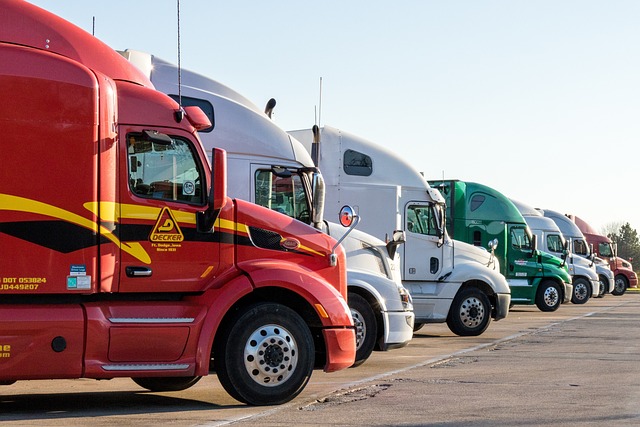Small fleet operators need comprehensive fleet insurance with top-rated trucking insurance to secure the best coverage for their unique operations. This includes tailored fleet policies with cargo protection plans, physical damage insurance, and small fleet liability coverage like multi-truck coverage. By prioritizing clear communication, prompt dispute resolution, and staying informed about tailored fleet policies, operators can ensure seamless processes that honor promised coverage, protecting against unforeseen events.
In the dynamic world of trucking and fleet management, ensuring your operations are protected by the right insurance is paramount. This article navigates the critical aspect of dispute resolution in fleet insurance, focusing on how small fleet operators can align their claims with promised coverage. We explore strategies for effective conflict management, best practices for tailored policies, and comprehensive protection options, including cargo, liability, and physical damage insurance, catering to top-rated trucking insurance needs. By understanding these elements, small fleet owners can maximize their coverage and safeguard their businesses against unforeseen challenges.
Understanding Coverage Promises and Disputes in Fleet Insurance

For small fleet operators, ensuring that claims align with promised coverage is paramount to maintaining smooth operations and financial stability. Understanding best coverage small fleet operators requires a grasp of both the unique risks they face and the comprehensive fleet insurance solutions available. A tailored tailored fleet policies approach that encompasses various coverage types, such as physical damage insurance and cargo protection plans, is crucial for addressing these risks effectively.
When disputes arise regarding claims under these policies, whether it’s misinterpretation of terms or disagreements over liability, resolving them promptly becomes essential. This involves clear communication between the insured, insurer, and legal experts to navigate complex multi-truck coverage options and small fleet liability coverage. The ultimate goal is to ensure that promised top-rated trucking insurance protects against unforeseen events, providing the best possible outcome for the small fleet operator.
Strategies for Effective Dispute Resolution in Small Fleet Operations

Small fleet operations often face unique challenges when it comes to dispute resolution, especially when navigating complex insurance claims. To ensure that their promises of coverage are met, small fleet operators should adopt strategic approaches that facilitate efficient and effective handling of disputes. One of the best strategies is to invest in comprehensive fleet insurance that includes top-rated trucking insurance options, offering both physical damage insurance and cargo protection plans tailored to their specific needs. This provides a robust safety net, aligning claims with promised coverage.
Moreover, small fleet operators should prioritize clear communication channels and proactive dispute management. This involves promptly reporting incidents, maintaining detailed records, and understanding the scope of their policies, including liability coverage options for multiple trucks under one roof. By fostering open dialogue with insurance providers and staying informed about their tailored fleet policies, operators can navigate disputes more smoothly, ensuring a seamless process that honors the best coverage promises made to small fleet operations.
Best Practices to Ensure Claims Alignment with Tailored Fleet Policies

To ensure claims align with tailored fleet policies, small fleet operators should adopt best practices that focus on comprehensive insurance coverage. First and foremost, opt for top-rated trucking insurance providers known for their robust cargo protection plans, which include physical damage insurance. This fundamental step protects against unexpected losses, ensuring your assets are safeguarded during operations.
Additionally, understand the specific needs of your fleet and choose liability coverage options that align with these requirements. Consider multi-truck coverage if you manage more than one vehicle to avoid gaps in protection. Regularly review policy terms and conditions, making amendments as your fleet evolves. This proactive approach guarantees that your claims are covered, fostering peace of mind and a seamless operations process.
Exploring Comprehensive Protection: Cargo, Liability, and Physical Damage Insurance Options for Trucking Businesses

Trucking businesses, especially those with small fleets, need comprehensive insurance solutions that match their unique operational needs. Beyond basic liability coverage, exploring specialized cargo protection plans is essential to safeguard against potential losses during transit. These plans ensure that drivers and companies are protected financially if goods become damaged or lost while in their care.
When considering the best coverage for small fleet operators, physical damage insurance plays a crucial role in mitigating risks associated with vehicle accidents or natural disasters. Tailored fleet policies that include multi-truck coverage options allow businesses to customize their protection, ensuring they’re prepared for any scenario. Top-rated trucking insurance providers offer these comprehensive packages, combining liability coverage, cargo protection, and physical damage insurance into seamless, cost-effective solutions.
To ensure claims align with tailored fleet policies, small fleet operators should embrace effective dispute resolution strategies. By understanding coverage promises and navigating disputes seamlessly, businesses can access their desired comprehensive fleet insurance, including top-rated trucking insurance, physical damage insurance, and robust cargo protection plans. This approach allows them to benefit from the best coverage for small fleets, fostering a secure environment for both operations and finances. Remember that choosing the right liability coverage and exploring multi-truck coverage options is key to preventing costly misalignments in claims.
